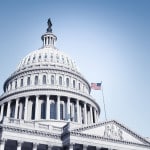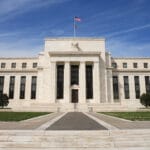
by Nika Cataldo | Feb 7, 2024
The Massachusetts Bankers Association is voicing support for a lawsuit filed by national bank trade groups earlier this week over stringent and what the national groups call “counterproductive” changes made to Community Reinvestment Act rules.

by Nika Cataldo | Nov 30, 2023
The nation’s FDIC-insured banks saw a decline in their aggregate net income in the third quarter versus the prior quarter due to lower non-interest income and higher losses on securities.

by Nika Cataldo | Sep 26, 2023
Seven out of the top 10 banks in terms of deposits gathered in Massachusetts saw declines in deposits as of the end of June according to FDIC data released this week.

by Nika Cataldo | Sep 11, 2023
Provisions for credit losses more than doubled and net charge-offs – bad debt that will never be recovered – jumped to $67 million from $19 million.

by Nika Cataldo | Aug 30, 2023
Smaller regional banks like Berkshire, Eastern and Rockland Trust won’t be covered, but their big competitors like M&T and Citizens will.

by James Sanna | Aug 16, 2023
Community banks loaded up on office loans, lines of credit to nonbank mortgage lenders and cyberattacks across the banking industry are some of the top risks bankers need to be watching, the FDIC said.

by The Associated Press | Jul 28, 2023
The nation’s biggest and most complex banks will need to hold additional capital on their balance sheets under an initial proposal by the Federal Reserve and FDIC.

by James Sanna | Jul 5, 2023
A top real estate industry trade group got to take a victory lap last week as federal banking regulators announced some rule changes around how banks will be required to deal with a wave of office loans that are maturing just as future demand for office space looks shaky.

by James Sanna | May 11, 2023
If your bank has less than $5 billion in uninsured deposits, it will be exempted from a new FDIC fee being levied on the nation’s banks in order to replenish the agency’s deposit insurance fund.

by James Sanna | May 1, 2023
The FDIC says it should be given the ability to insure some bank account balances above its standard $250,000 cap in order to preserve financial stability in the future.

by Diane McLaughlin | Mar 27, 2023
While only about one-third of Silicon Valley’s deposits remained at the bridge bank following the bank run and its aftermath, North Carolina-based First Citizens Bank & Trust Co. expects to bring back some of those former deposits and customers.

by James Sanna | Mar 27, 2023
The major North Carolina bank has agreed to take over the remnants of Silicon Valley Bank, two weeks after the latter failed sending waves of concern rippling through the banking sector.
by Peter Paul Payack | Mar 26, 2023
The FDIC is carving up Silicon Valley Bank this weekend, quite literally. But who’s lining up at the buffet, plate in hand?

by Diane McLaughlin | Mar 20, 2023
The FDIC plans to sell the legacy Boston Private business separately from the rest of Silicon Valley Bank through a new process announced this morning.

by Steve Adams | Mar 19, 2023
Silicon Valley Bank’s failure is creating a potential gap in financing for Massachusetts affordable housing projects and risks for commercial landlords that have a concentration of tech and life science tenants.

by Diane McLaughlin | Mar 17, 2023
Massachusetts’ own Depositors Insurance Fund was a key tool in helping local banks reassure customers of the safety of their deposits while Silicon Valley Bank melted down last week. But its also lost some of the biggest names in local community banking in recent years.

by Diane McLaughlin | Mar 14, 2023
The Federal Reserve has launched a review of its own supervision of Silicon Valley Bank following the bank’s failure. A top community bank group is urging the central bank to differentiate small and large banks in its response.

by The Associated Press | Mar 10, 2023
The bank, which has a major presence in Massachusetts after buying Boston Private Bank in 2021, failed after depositors – mostly technology workers and venture capital-backed companies – began withdrawing their money creating a run on the bank.

by Diane McLaughlin | Dec 2, 2022
Higher net interest income has helped drive earnings at Massachusetts banks through the first three quarters of 2022, according to FDIC data.

by Diane McLaughlin | Sep 19, 2022
While total deposits at Massachusetts banks continued to increase, FDIC data shows the surge that marked the first two years of the pandemic has slowed down.



















